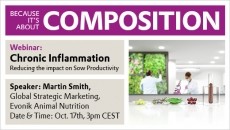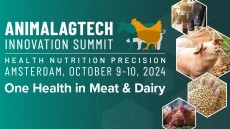BfR antimicrobial resistance poultry project to weigh up botanicals, probiotics

The project involves collaboration between the science community and the poultry industry in Germany to reduce the incidence of resistant bacteria in birds.
It is supported by the Federal Ministry of Food and Agriculture (BMEL) to the tune of €2.46m on the basis of a resolution by the German parliament.
A spokesperson for the lead on the feed additives strand, the Department of Veterinary Medicine at the Free University in Berlin, said it would be remaining tight lipped on the details of that research component at this stage, but told us:
“Different phytogenic [plant derived] additives will be investigated for their effectiveness within the EsRAM project.”
A spokesperson for the BfR also told us the potential benefits of probiotics in terms of AMR pathogen reduction in broilers would be examined by the working group.
Also known as phytobiotics or botanicals, phytogenics products used in feed are said to be capable of improving animal performance by either their antimicrobial activity, their antioxidative effects, or by enhancing feed palatability and improving gut functions.
Dr Reiner Wittkowski, vice president of the Federal Institute for Risk Assessment (BfR), said poultry meat is a major point of contact with AMR bacteria for consumers.
"This [the EsRAM project] is our starting point for further improving the safety of these foods”, he added.
Housing, slaughter and processing goals
The project coordinators said there is major need for action in the areas of housing, slaughter and processing of broilers, in terms of implementing reduction measures to tackle AMR in poultry.
Germany’s food and agriculture minister, Christian Schmidt, said: "We can only prevent the development of antimicrobial resistance, if human and veterinary medicine cooperate closely.
“With the 16th amendment of the Medicines Act, we have already established a system to minimize the use of antibiotics in production animals in Germany.
A further aspect in the prevention of antimicrobial resistance is research. This is the reason why my ministry invests in the development of concrete measures and products which contribute to a reduction of the development and transmission of antibiotic-resistant bacteria in poultry meat production."
The BfR, as part of the initiative, will focus on two research areas:
Its scientists will look at current procedures of slaughtering, cutting and final processing of poultry in an attempt to gain more precise knowledge of how pathogens are transferred from one production stage to the next and at what stages new pathogens are introduced.
"The aim is to develop a catalogue of measures with possible concrete actions to minimize the spread of bacteria in poultry meat production. Among other things, the focus here is on the development of technical procedures for slaughtering, cutting and processing of poultry, cleaning and disinfection systems as well as bacteria reducing production and packaging processes,” said the BfR.
As part of the second research project, the BfR said it will develop electronic, data-based documentation and assessment systems for poultry producers, poultry abattoirs and processing plants.
"The basic objective is to estimate the effectiveness of individual measures in reducing the spread of bacteria within the working processes in abattoirs and processing plants," said the agency.
















